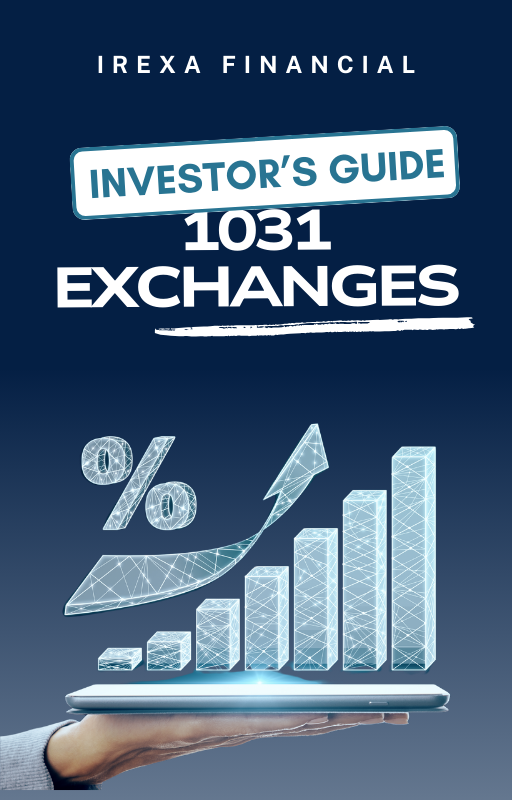HOW DO 1031 EXCHANGES WORK?
A 1031 exchange allows real estate investors to swap one investment property for another while deferring capital gains taxes. However, navigating the process can be complex without a clear understanding of the rules.Key Rules to Know
Planning a 1031 exchange? Understanding the essential rules is crucial.
Our FAQ section covers the most important considerations to ensure a smooth exchange.
HOW DO YOU KNOW YOUR CAPITAL GAIN?
We simplify the 1031 exchange process with step-by-step guides and FAQs, so you know exactly what to expect. Let us help you make informed decisions with confidence.
1031 Exchange Frequently Asked Questions
What is a tax-deferred exchange?
It is a process that allows a taxpayer to exchange an investment or business property and defer the payment of the capital gains tax. Normally there is a delay between settlements of the property being relinquished and the replacement property.
What are the reinvestment requirements in an exchange?
How are capital gains figured?
What is the criteria for a deferred exchange?
What is the first step in conducting a deferred exchange?
How is the replacement property identified?
Do all properties qualify for a 1031 exchange?
Can I do a 1031 Exchange After I sell the property?
1031 Exchanges Must Be Like-Kind To Succeed
1031 Exchange Frequently Asked Questions
Properties that qualify:
Commercial Property
Rental Property
Farm Land
Apartment Buildings
Delaware Statutory Trusts (DST)
Properties that DON’T qualify:
Commercial Property
Second Homes
Dealer Property
Vacation Rentals
Properties Purchased From Family Members

Get Your Free Guide Now
Master the Power of 1031 Exchanges
We created this comprehensive guide to help real estate investors understand how to leverage 1031 exchanges to build and preserve wealth:
- Learn how to defer capital gains taxes while strategically repositioning your real estate portfolio
- Understand the critical timelines and identification rules that must be followed for a successful exchange
- Discover strategies for meeting debt and equity requirements to maximize tax deferral
- Explore how to properly select and vet a Qualified Intermediary to protect your exchange funds
- Navigate potential risks and compliance requirements to ensure your exchange is validated
Download our exclusive guide to learn how you can defer taxes on your real estate sales while building a stronger, more diversified investment portfolio for long-term wealth creation!
Strategic Tax Mitigation™
With IREXA
Services
1031 Exchanges
Tax Mitigation
Bonus Depreciation
Alternative Investments
Resources
Bob's Insights
2312 East Lake Ave., E.
Seattle, WA 98102
P: (650) 823-7280
©2025 IREXA Financial Services | Wealth Strategies. All Rights Reserved. Privacy Policy
* IREXA® Financial Services / Wealth Strategies, Great Point Capital, LLC and Abacus Insurance Advisors, LLC do not provide legal or tax advice.
**Investing has risks; performance is not guaranteed. Securities offered through Great Point Capital, LLC (GPC) (member FINRA/SIPC). Robert L. Boggess is an independent representative of Great Point Capital, LLC. IREXA® Financial Services/Wealth Strategies is not an affiliated company with the Great Point Capital, LLC or CPAAcademy.org. No offer to buy or sell securities is being made. Such offers may only be to qualified accredited investors via private placement memorandum. Neither GPC nor IREXA® are tax advisors. Prospective strategies and products used in any tax advantaged investment planning should be reviewed independently with your tax and legal advisors. Investments are not guaranteed or FDIC insured and risks may include but are not limited to complete loss of principal investment. Risks detailed in a private placement memorandum should be carefully reviewed, understood and considered before investment. Changes in the tax code and other regulatory revisions could have a negative impact upon strategies developed and recommendations made.
Risk Disclosure: Alternative investment products, including real estate investments, notes & debentures, hedge funds and private equity, involve a high degree of risk, often engage in leveraging and other speculative investment practices that may increase the risk of investment loss, can be highly illiquid, are not required to provide periodic pricing or valuation information to investors, may involve complex tax structures and delays in distributing important tax information, are not subject to the same regulatory requirements as mutual funds, often charge high fees which may offset any trading profits, and in many cases the underlying investments are not transparent and are known only to the investment manager. Alternative investment performance can be volatile. An investor could lose all or a substantial amount of his or her investment. Often, alternative investment fund and account managers have total trading authority over their funds or accounts; the use of a single advisor applying generally similar trading programs could mean lack of diversification and, consequently, higher risk. There is often no secondary market for an investor's interest in alternative investments, and none is expected to develop. There may be restrictions on transferring interests in any alternative investment. Alternative investment products often execute a substantial portion of their trades on non-U.S. exchanges. Investing in foreign markets may entail risks that differ from those associated with investments in U.S. markets. Additionally, alternative investments often entail commodity trading, which involves substantial risk of loss.
NO OFFER OR SOLICITATION: The contents of this website: (i) do not constitute an offer of securities or a solicitation of an offer to buy of securities, and (ii) may not be relied upon in making an investment decision related to any investment offering by IREXA® Financial Services/Wealth Strategies, Great Point Capital, LLC, or any affiliate, or partner of (“Great Point Capital”). IREXA® Financial Services/Wealth Strategies does not warrant the accuracy or completeness of the information contained herein. FINRA Broker Check: Check the background of this investment professional on FINRA BrokerCheck.
